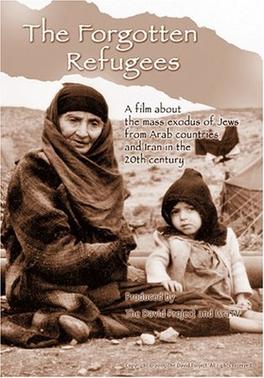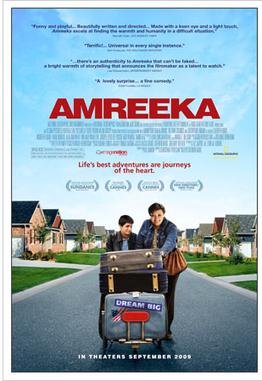Related Research Articles
In the 20th century, approximately 900,000 Jews migrated, fled, or were expelled from Muslim-majority countries throughout Africa and Asia. Primarily a consequence of the 1948 Arab–Israeli War, the mass movement mainly transpired from 1948 to the early 1970s, with one final exodus of Iranian Jews occurring shortly after the Islamic Revolution in 1979–1980. An estimated 650,000 (72%) of these Jews resettled in Israel.

The history of the Jews in Libya stretches back to the 3rd century BCE, when Cyrenaica was under Greek rule. The Jewish population of Libya, a part of the Sephardi-Maghrebi Jewish community, continued to populate the area continuously until modern times. During World War II, Libya's Jewish population was subjected to antisemitic laws by the Fascist Italian regime and deportations by both the Italian and German armies.

Ondi Doane Timoner is an American filmmaker and the founder and chief executive officer of Interloper Films, a production company located in Pasadena, California.

Irene Taylor is a film director and producer.

The Forgotten Refugees is a 2005 documentary film directed by Michael Grynszpan and produced by The David Project and IsraTV with Ralph Avi Goldwasser as executive producer, that recounts the history of Jewish communities of the Middle East and North Africa and their demise in the face of persecutions following the creation of the modern State of Israel in 1948.

Amreeka is a 2009 independent film written and directed by first-time director Cherien Dabis. It stars Nisreen Faour, Melkar Muallem, Hiam Abbass, Alia Shawkat, Yussuf Abu-Warda, Joseph Ziegler, and Miriam Smith.
James Michael Spione is an American director, producer, writer and editor of both documentary and fiction films. Early on in his career, he developed a reputation for suspenseful dramatic shorts; his later career, however, has been marked by a new focus on short and feature-length documentaries for both theatrical release and public television broadcast.

Rachel Grady is an American documentary filmmaker.
Pietra Brettkelly is a New Zealand filmmaker, known for her documentaries. She is a documentary filmmaker submitted three times for Oscar consideration, a member of The Academy of Motion Pictures Arts and Sciences, and was recently named an Arts Laureate of New Zealand. Her films have premiered in five of the world's top six film festivals – Sundance, Toronto, Venice, Berlin and Tribeca Film Festivals – and have garnered many awards. She is known for her independent, risk-taking style, which has taken her to many different countries. She approaches her subjects' lives with a "quiet" demeanor and "non-judgmental" attitude, allowing her to capture and document real stories.

Heidi Ewing is an American documentary filmmaker and the co-director of Jesus Camp, The Boys of Baraka, 12th & Delaware, DETROPIA, Norman Lear: Just Another Version of You, One of Us, Love Fraud (series), I Carry You With Me (narrative) and Endangered.

Conditions worsened for the Jews of Libya after the passage of Italy's Manifesto of Race in 1938. Following the German intervention in 1941, some Jews were sent to camps in continental Europe, where those who survived stayed until the end of World War II.
Aryeh B. Bourkoff is an American businessman and documentary producer. He is the founder and chief executive officer of LionTree LLC, a global investment and merchant banking firm focused on media, technology and telecommunications.

Danae Elon is a documentary filmmaker and cinematographer from Jerusalem. She is based in Montreal, Quebec.
Connie Field is an American film director known for her work in documentaries.

Kim A. Snyder is an American filmmaker and producer. Previously, she spent some time contributing to Variety.
Marina Zenovich is an American filmmaker known for her biographical documentaries. Her films include LANCE, Robin Williams: Come Inside My Mind, Richard Pryor: Omit the Logic and Roman Polanski: Wanted and Desired, which won two Emmy awards.

Maurice M. Roumani, is a professor of Politics and International Relations, Religion and Society of the Middle East and the Founder of the J. R. Elyachar Center for Studies in Sephardi Heritage at Ben-Gurion University of the Negev in Israel. He specializes in Ethnic Relations in Israel, Jews of Arab countries, the Middle East Conflict, and he is an expert on the History of Libyan Jews, Jewish-Muslim Relations and the impact of Holocaust policies in North Africa.
Vivienne Roumani-Denn is an American oral historian and filmmaker. She created the first web site of the Jews of Libya and she is the director of critically acclaimed films The Last Jews of Libya and Out of Print.
In June 1967, an anti-Jewish pogrom took place in the Libyan city of Tripoli.

The Giado concentration camp was a forced labor concentration camp for Italian and Libyan Jews in Giado, Libya, operating during the Second World War from May 1942 until its liberation by British troops in January 1943. The camp was established on the orders of Benito Mussolini, the Prime Minister of Italy. At the time, Libya was under Italian colonial control and was known as Italian Libya.
References
- 1 2 3 4 5 "The Last Jews of Libya" (PDF). Jewish Film. Retrieved 29 October 2020.
- ↑ "The Last Jews of Libya". Tribeca Film Festival . Retrieved 29 October 2020.
- 1 2 "USA: Documentary recounts Jewish family's history in Libya before World War II in "The Last Jews in Libya."". Reuters . 9 May 2007. Retrieved 29 October 2020.
- 1 2 Louria, Avital (14 May 2007). "The Last Jews of Libya (documentary)". Investment Dealers' Digest. Retrieved 29 October 2020.
- ↑ ""The Last Jews of Libya" To Be Shown at the Library of Congress on Nov. 5". Library of Congress . 15 October 2007. Retrieved 29 October 2020.